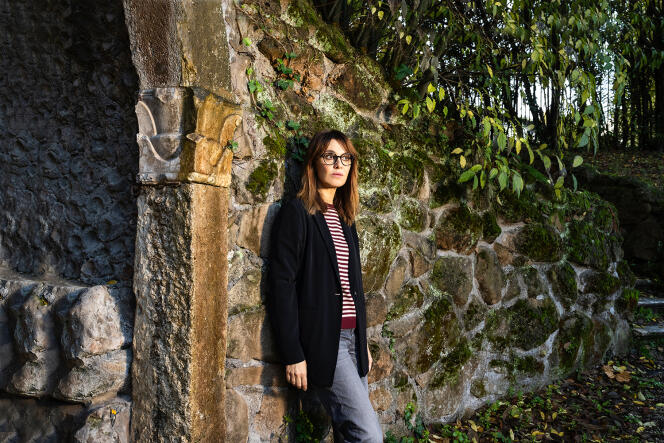


Italy welcomed her first film as if it had been long awaited. Popular actress-turned-director Paola Cortellesi, 50, herself said that There's Still Tomorrow has struck a "raw nerve" in Italian society. Since its release in Italy on October 26, the film has been seen by 4.4 million viewers in the country, more than Christopher Nolan's Oppenheimer and Greta Gerwig's Barbie.
Set in a 1946 Rome which is still scarred by war – and at the dawn of a republic where women would gain the right to vote – There's Still Tomorrow is a story of emancipation. In this drama punctuated by moments of humor – to be released in France on March 13 – Cortellesi plays the character of Delia, a poor mother determined to take her freedom despite her husband's brutal violence and the more insidious male domination that creeps into every corner of society.
The film is also a story of mutual support between two generations of women, Delia's and that of her daughter, whom she saves at the last moment from a fate similar to her own. Shot in Rome – in black and white – in the still-popular post-war Testaccio district, it is riddled with references to Italian neo-realism, with forays into comedy. "Between the subject and the form, the project wasn't enough to reassure producers and distributors. But working on this story was a matter of urgency!" the director confided.
Cortellesi started out in the 2000s as a comedian on television. She made a name for herself with celebrity impersonations in prime-time shows, then went on to star in successful popular comedies that won her prestigious awards. About 10 years ago, she began to develop her screenwriting skills, before preparing to move behind the camera.
There's Still Tomorrow's success was amplified during an autumn in which its subject matter resonated with tragic news events. Since mid-November, Italy has been deeply affected by the femicide of a 22-year-old student, Giulia Cecchettin, killed by her ex-partner. The age of the victim and the murderer, their middle-class background and their profiles as "ordinary young people" quickly attracted media attention. The case took on a new dimension when the victim's sister, Elena, decided to use her grief as a platform to publicly criticize the structural causes of violence against women.
After she spoke out, a wide-ranging debate about the patriarchy's consequences and its deep roots began in the Italian media, among families and in couples. The film responds to this groundswell, and has given it even greater force. It has been watched, re-watched and shown to others. "There's Still Tomorrow creates an emotional short-circuit between eras, between two moments of emancipation, which makes it very contemporary and has led it to meet a powerful underground movement in Italian society," said Paola Malanga, artistic director of the Rome Film Fest, where the film won three trophies, including the Jury's Special and People's Choice awards.
You have 60% of this article left to read. The rest is for subscribers only.
